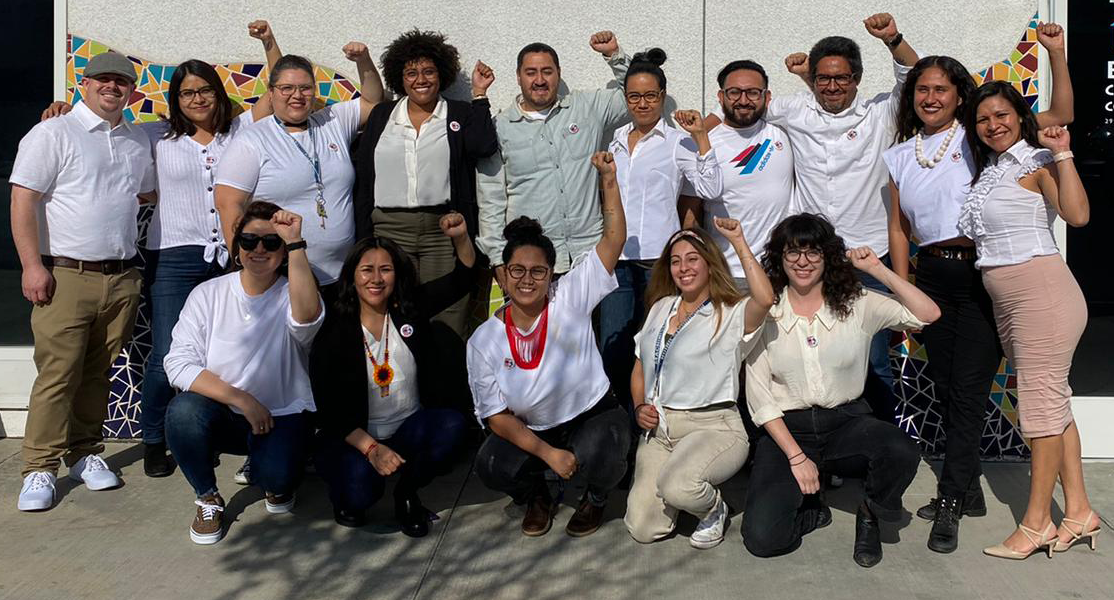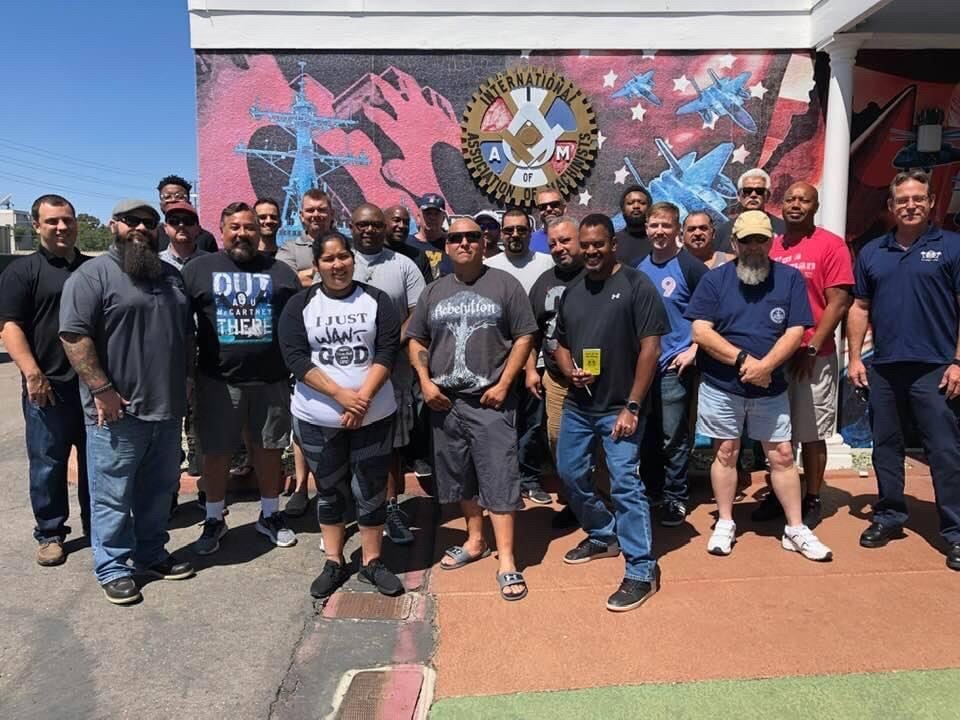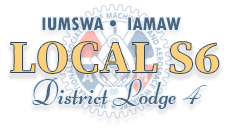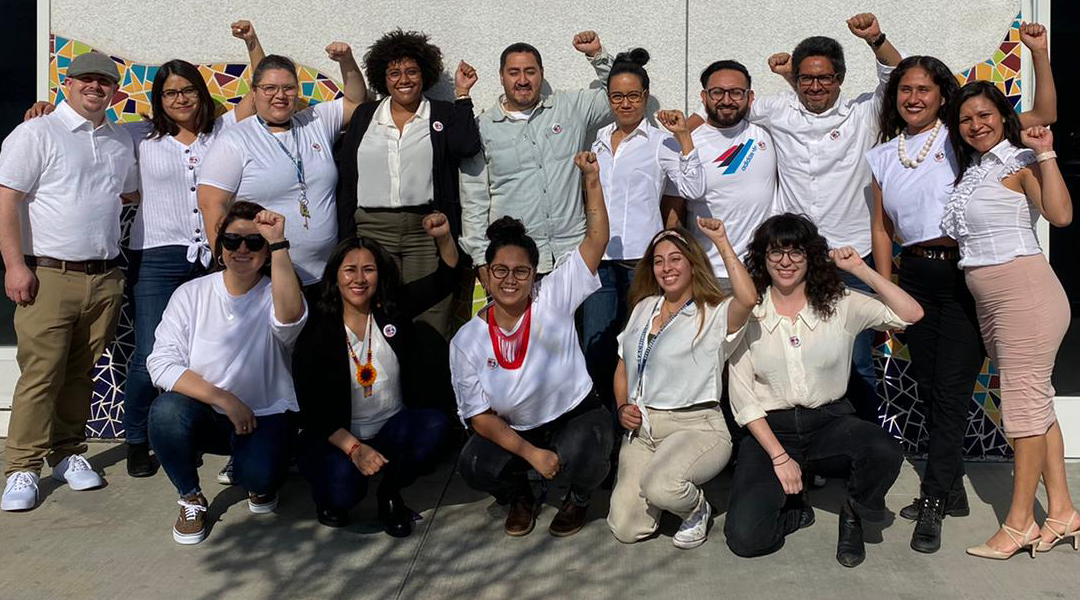Organizing is the heartbeat of the Machinists Union and always will be. But who we organize has changed over the years, and for good reason. That’s especially true in the IAM’s Western Territory. Today, its focus is about organizing what will be the next generation of trade unionists, in industries you may not think of when you hear the acronym IAM.
“A true trade unionist is someone committed to bettering the lives of people in their workplace and giving back to the process,” said IAM Western Territory’s General Vice President Gary R. Allen. “We are all very fortunate to have been put in a place where there’s a union and a union contract. We can’t take that for granted.”
After more than 40 years in the IAM, Allen lives by these words, as do his staff spread throughout the territory from Washington state to New Mexico. He believes in the adage “a rising tide lifts all boats” and he has a plan to make that a reality.
“What we are doing is trying to get people to realize it’s not just about paying dues,” said Allen. “Paying dues is the bare minimum of maintaining the union and making it stronger. We are asking people to start giving us time and commitment to cultivate the leaders we need for the future.”
One way the Western Territory is tackling such an important task is to organize in areas where the machinist moniker may not be synonymous now, but could be in the future.
The hospice and palliative Master Social Workers (MSW) and Bereavement Counselors working for Virginia Mason Franciscan Health in Washington state were having major issues at work. But what concerned them the most was that patient care was suffering because of it.
“It was a perfect storm of issues that came together and made us realize, we needed someone to speak for us,” remembered MSW Jordyn LaFreniere.
After reaching out to a friend she knew from high school, IAM Grand Lodge Representative Gabby Rogano, the group of nearly 40 health care workers met with the Machinists.
“We needed someone to believe in us and have our back and that’s what the IAM did,” recalled LaFreniere. “After three interviews with different unions, we agreed, it’s obviously the Machinists. It just felt serendipitous.”
“They were so focused on caring for others that they weren’t focused on themselves,” said IAM District 751 President and Directing Business Representative Jon Holden. “By suffering through ownership and management changes, which ultimately hurt their patients, they finally realized they needed representation. They needed an advocate to be able to do the things that they needed to take care of their patients.”
Joining the Machinists Union was the catalyst for the nurses and the chaplains, all part of their working family, to also sign with the IAM. Today, this group is nearly 170 members strong, in two separate bargaining units. Negotiations began in April. As is the machinist way, higher health and welfare benefits will be on the table, but work issues like autonomy and strengthening patient care will top the list. This moral imperative to place patient care above their own needs, mirrors the Machinist practice of servicing the membership above all.

IAM members working for the Central American Resource Center (CARECEN) show their union solidarity.
“Ninety-nine percent of the health care workers I have met aren’t in it for the paycheck,” explained Allen. “They are in it to provide care and they want to help their fellow citizens. You can’t do that work unless you are committed on a certain level to helping other humans. They are already advocates.”
Holden agreed.
“That compassion and willingness to serve is going to make our union better,” said Holden. “They are already activists and we will see a lot of them get more involved over time.”
“The motto of the Machinist Union is ‘justice on the job, service to the community,’” said Allen. “So it just makes sense for us to want to organize workers with the same values.”
“In the nonprofit world, there’s a sense of ownership for what we do,” said IAM District 947 Business Representative/Organizer Jennifer Marin Esquivel. “You love the fact that you are serving the community and advocating for your clients. It’s a special place if you have the heart for it.”
That sense of community and advocating is a good fit for the Machinists Union. Something IAM District 947 President and Directing Business Representative Sal Vasquez realized right away. He saw a leader in Marin Esquivel and an opportunity to do some good.
Originally, Marin Esquivel was the event coordinator for a nonprofit called CARECEN which stands for the Central American Resource Center. This group offers low to no cost immigration services in the Los Angeles area. Although she had a solid relationship with management, disparate treatment, employees without a voice and a lack of equality, were obvious in the office. They knew they needed help and went looking for a union.
“The Machinists Union said to us, ‘you advocate for your clients, why wouldn’t you want someone to advocate for you?’ and that just made so much sense to the group as a whole,” said Marin Esquivel.
CARECEN employees voted overwhelmingly to join the IAM and word quickly spread. Here was a union who understood the underlying principles of nonprofit work and what the employees needed. Today, the Western Territory is working with seven separate nonprofits, both local and national, two of which already negotiated a first contract. Wage equality, prison reform, refugees and community resource centers are just a few arenas in which these nonprofits operate.
With Marin Esquivel’s expertise, supported by her machinist colleagues and GVP Allen, IAM District 947 is becoming a staunch leader in organizing the activists of the nonprofit world.
“We are talking about paralegals, lawyers, organizers, so they know what it feels like to advocate,” explained Marin Esquivel. “When we meet with these groups, I always tell them we are here to give you options, that’s our job. All I can give you is a voice – and a way to amplify that voice.”
“For these nonprofit activists and the health care advocates, it’s not just about a paycheck or benefits or working conditions,” said Allen. “It’s about helping them provide quality care to their patients and clients. They are advocates, first and foremost. Everything else is secondary.”
The conversation of how we look at the future of the labor movement is changing in the Western Territory. Everyone agrees, we all need to do our part.
“The question isn’t, can we deliver? But rather, can we together make a movement that will create real change?” asked Marin Esquivel of herself and other advocates. “You have to put in your grain of sand because those little grains of sand create the beach.”
Being part of something bigger than yourself is what union means to many people.
Justin Mauldin, Director of Organizing for IAM District 725 said he believes most people want to make a difference.
“I feel 90 percent of the world wants to help their fellow man. We are meant to help each other, to have a sense of community,” said Mauldin. “So, if we show them how they can do that and here’s how it will also help you, they will do it.”
Creating that sense of community in the Western Territory has proven advantageous when it comes to organizing and negotiating Service Contract Act (SCA) agreements. IAM’s District 725 President and Directing Business Representative Larry Olinger has honed this idea in his area for years, making his group a leader in organizing for this territory.

Shop Steward Training at IAM Local 1125 for members working under the Service Contract Act.
That bodes well for those working under SCA agreements. These bargaining units often contain a large number of veterans like Mauldin. As a former U.S. Marine, he can relate to wanting to find that sense of community so many veterans seek.
“Once you get out of the U.S. Marine Corps., you miss that sense of camaraderie. You miss being around like-minded people, working toward a common goal,” related Mauldin. “So with the IAM, you have a common goal. You have that sisterhood and brotherhood and it gives you that community you’re looking for. If we can show them that we are there for them, that’s everything.”
Much like nonprofits and the health care workers, creating a community that believe in taking care of each other is key to cultivating a new breed of activists for our future union family.
“When you see someone riding around with an IAM sticker or wearing a Machinist shirt, it makes you feel like you are part of a community,” noted Mauldin. “When you feel like you are part of that community, you are willing to do things to better that community,”
The work done by the Western Territory staff in recent years is setting the bar for the future of the labor movement. Organizing, servicing and providing good contracts is the trifecta of this area and always will be. But making sure the labor movement is strong for the next set of leaders is paramount to the entire working class.
“Now it’s time to build a base of volunteers and more actual union members, not just dues payers,” said Allen. “I sincerely believe the things you focus on come to fruition. As long as we have the right message, we are going to appeal to the right people. I believe this is the future of the labor movement, not just the IAM but all of it.”
“A rising tide lifts all boats” is a phrase that can be heard throughout the territory. It’s why the union members in the West are willing to give up a little for themselves in order to benefit the group. Or how being union isn’t about earning a bigger paycheck but making sure those good, paying union jobs are secure for the ones who come after. It’s about advocating for those who don’t have voice and leaving a legacy that is the foundation for the prosperous future.
The post A Rising Tide Lifts All Boats appeared first on IAMAW.

